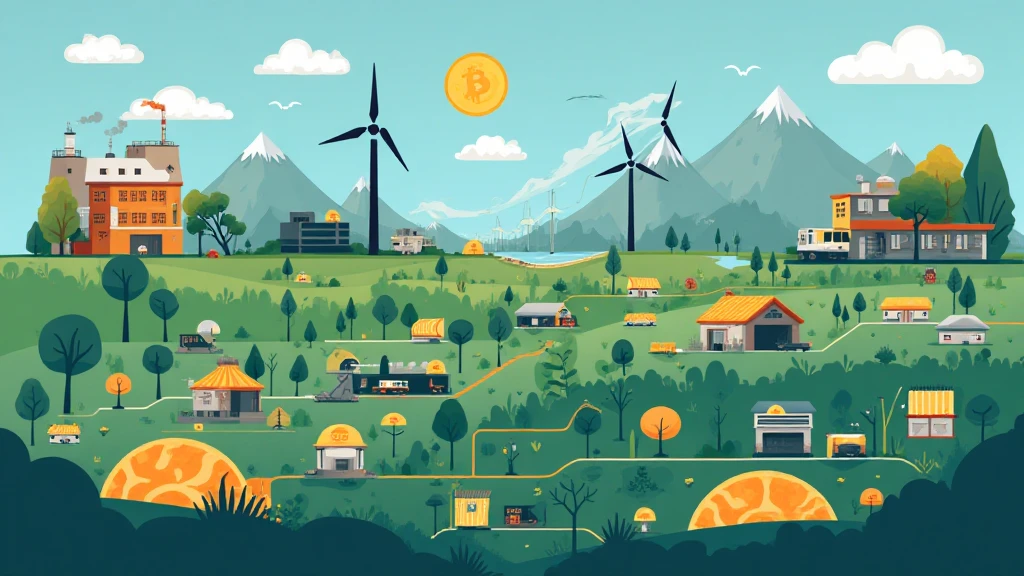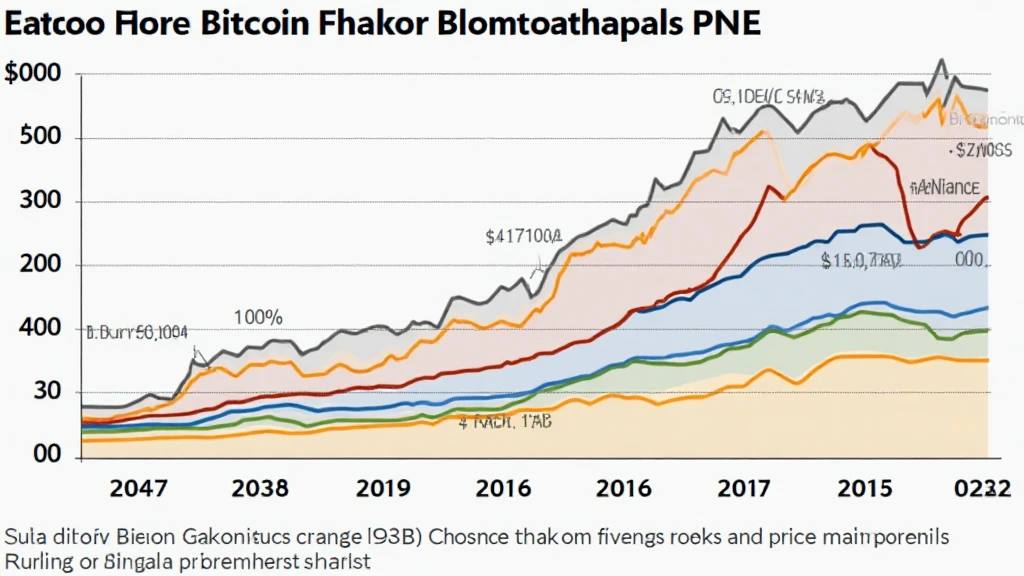Bitcoin Blockchain Carbon Neutrality: A Path Towards Sustainable Finance
As the global conversation around climate change intensifies, the spotlight on the Bitcoin blockchain and its environmental impact has never been more critical. With the world facing significant challenges related to carbon emissions, the question arises: Can Bitcoin achieve carbon neutrality? Recent studies indicate that over 65% of Bitcoin mining is powered by renewable energy sources. This article will explore the concept of carbon neutrality within the context of Bitcoin and blockchain technology, enhancing your understanding of how these dynamics can shape the future of finance.
The Environmental Debate Around Bitcoin
Bitcoin has faced extensive criticism for its energy consumption. In 2024 alone, the estimated energy consumption for Bitcoin mining rose to approximately 126 terawatt-hours (TWh), which is comparable to the power consumption of some small countries. A significant portion of this energy comes from fossil fuels, leading to a carbon footprint that is troubling for an asset that purports to be decentralized and democratizing.
However, there is a growing movement within the industry that seeks to make this cryptocurrency more sustainable. Carbon neutrality refers to achieving net-zero carbon emissions by balancing emissions with an equal amount of carbon offsets. In the context of the Bitcoin blockchain, this could mean investing in renewable energy projects or funding reforestation efforts that absorb CO2 from the atmosphere.

The Role of Renewable Energy in Bitcoin Mining
In recent years, Bitcoin miners have shifted toward using renewable energy sources. Vietnam, for instance, is seeing a remarkable increase in the adoption of solar energy, with local miners increasingly tapping into these resources. As per recent data, Vietnam’s solar energy generation increased by 30% in 2024, providing a more sustainable option for miners.
- Mining facilities powered by wind and solar energy significantly reduce their carbon footprint.
- Use of excess energy by miners can stabilize energy grids, making renewable projects more viable.
- Innovative solutions such as energy blockchain facilitate peer-to-peer energy sharing, further integrating Bitcoin mining with renewable sources.
Innovative Solutions for Carbon Footprint Reduction
The Bitcoin community is not sitting idle; various protocols and initiatives are being developed to mitigate environmental impact. One such initiative is the Bitcoin Mining Council, which aims to promote transparency and sustainability within the Bitcoin mining sector by encouraging miners to share their energy sources and consumption data.
Here’s the catch: The effectiveness of these measures depends heavily on community participation and the commitment of players within the Bitcoin ecosystem to focus on sustainability.
Data Transparency and Carbon Credit Markets
Integrating carbon credit markets into the Bitcoin blockchain can lead to a significant reduction in emissions. With a decentralized ledger, transactions could transparently track and verify carbon offsets, allowing users to trade carbon credits more efficiently. This development could incentivize miners to adopt cleaner energy practices even faster.
- Decentralized carbon credits: Allow for real-time tracking of carbon offsets.
- Smart contracts: Automate processes, ensuring transparency and efficiency.
- Community engagement: Challenges in adoption can be overcome through user education and incentivization.
Local Market Impact: Vietnam’s Blockchain Growth
As we turn our gaze towards Vietnam, the country has made significant strides in blockchain adoption, with a reported 90% growth rate in cryptocurrency users over the past year. This surge suggests a strong local interest in achieving carbon neutrality and sustainability.
Local initiatives that promote the use of renewable energy in blockchain operations are increasingly important. The Vietnamese government’s commitment to expanding renewable energy infrastructure can provide the foundation for local miners to operate sustainably.
Educational Initiatives for Sustainable Practices
Supporting educational programs relating to sustainable practices in blockchain technology is essential. Educating stakeholders about energy consumption and carbon neutrality will empower users to make informed decisions about their blockchain involvement.
- Workshops and seminars: Educate local miners and businesses on renewable options.
- Collaboration with universities: Foster research in sustainable blockchain technology.
- Community programs: Encourage local participation in renewable energy projects.
How Can Users Contribute to a Greener Blockchain?
Individuals looking to invest in or utilize Bitcoin can take steps to promote carbon neutrality within their practices. Here are some actionable recommendations:
- Choose renewable mining pools: Support miners who utilize renewable energy.
- Use energy-efficient hardware: Reduce overall energy consumption.
- Advocate for sustainability: Raise awareness of the need for carbon-neutral practices within the community.
Conclusion: The Road Ahead for Bitcoin Blockchain and Carbon Neutrality
The conversation surrounding Bitcoin blockchain carbon neutrality is evolving rapidly, with promising developments paving the way for a more sustainable future. By integrating renewable energy, fostering innovation, and encouraging community engagement, it is indeed possible for Bitcoin to become a leader in sustainable finance.
As seen in Vietnam and around the globe, the transition towards greener blockchain practices is not just a choice—it’s a necessity. As the industry grows, it’s crucial to prioritize carbon neutrality to ensure that digital finance aligns with global efforts to combat climate change. For further insights on blockchain technology, visit hibt.com.
Mycryptodictionary is committed to providing users with the latest insights, tools, and resources to navigate the world of cryptocurrency and blockchain technology responsibly.
About the Author: Dr. Linh Ngo is a sustainability expert and digital finance researcher with over 15 publications in the fields of blockchain technology and renewable resources. She has spearheaded audits for several high-profile environmental projects aimed at reducing carbon footprints within the cryptocurrency space.






